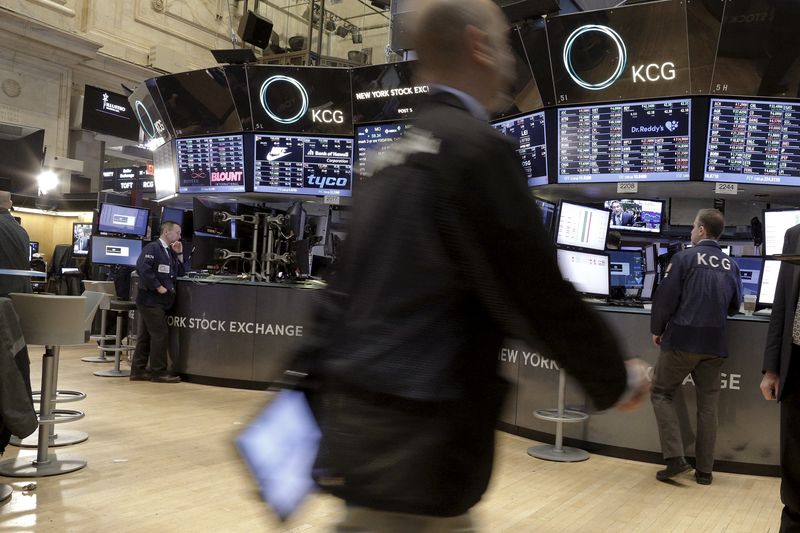By Geoffrey Smith
Investing.com -- Lawmakers are set to extend the U.S. federal government's funding through December, but the fate of two major spending bills is still in the balance. U.S. GDP data for the second quarter are set to be revised, and weekly jobless claims are due. China's manufacturing sector slipped into conctraction for the first time since the height of the pandemic last year. The Jerome and Janet Show returns to Capitol Hill, as the dollar hits a 12-month high. Federal regulators end a probe into Virgin Galactic and the energy crisis in China and Europe grinds on. Here's what you need to know in financial markets on Thursday, 30th September.
1. A temporary fix for the funding the government
Democratic Senator Chuck Schumer said lawmakers have reached an agreement in principle to extend the federal government’s funding until December 3rd, averting the risk of a shutdown from tomorrow. A vote is due early Thursday in Washington, D.C.
However, the Democrats’ spending bills remain deadlocked due to internal divisions. House Speaker Nancy Pelosi shifted course again and scheduled a vote for Thursday on an infrastructure bill with a degree of bipartisan support. That’s effectively daring the progressive wing of the party to take responsibility for yet more paralysis in Washington that could cost the party dearly at next year’s mid-term elections.
The House will also get to hear testimony from Federal Reserve Chairman Jerome Powell and Treasury Secretary Janet Yellen from 10 AM ET, which is likely to go over the same ground as Tuesday’s testimony to the Senate Banking Committee.
2. Dollar hits 12-month high
The dollar continues to strengthen, thanks to a combination of fears for growth in China, and the uptick in risk aversion triggered – paradoxically – by the political theater in the U.S., where a worst-case outcome would be ‘catastrophic’, according to Yellen.
By 6:15 AM ET (1015 GMT), the dollar index that tracks the greenback against a basket of developed market currencies was up 0.1% at 94.42, having posted big gains against both the yen and sterling this week. It’s also up by more than 2% this week against the Mexican peso and Brazilian real. The central banks of Mexico and Colombia are both expected to raise key interest rates by 25 basis points each later Thursday.
Elsewhere, New York Fed President John Williams is due to speak at 10 AM ET.
3. Stocks set to open higher; Virgin Galactic in focus
U.S. stocks are set to open the day higher, but the S&P 500 remains on course for its biggest monthly loss since March 2020 as worries over federal government paralysis and the withdrawal of monetary support persist.
By 6:15 AM ET (1015 GMT), Dow Jones futures were up 160 points, or 0.5%, while S&P 500 and Nasdaq 100 futures were up in parallel. The Nasdaq Composite had slipped another 0.2% on Thursday, as money flowed back into value stocks, leaving the other two main indices with modest gains.
Stocks likely to be in focus later include Virgin Galactic, which soared in premarket after federal regulators chose not to take action against the company for alleged violations of safety protocols during its debut flight earlier in the summer. Carmax, Paychex (NASDAQ:PAYX) and Jefferies (NYSE:JEF) all report earnings.
4. U.S. GDP revision, jobless claims due as China slips into contraction
It’s a heavy day for economic data, with the latest revisions to U.S. gross domestic product in the second quarter due at 8:30 AM ET, along with data for initial jobless claims, which have risen for the last two weeks.
Data from around the world showed a mixed picture overnight, with China’s official manufacturing purchasing managers index falling below the key 50 threshold for the first time since February 2020 as the country’s energy crunch intensified. Japan’s retail sales and industrial production meanwhile showed the effects of Covid-19 related lockdowns.
However, industrial production data from South Korea were stronger than expected and U.K. GDP for 2Q was revised up sharply. Germany’s jobless total fell in September, while French consumer spending held up well.
5. Oil rangebound as Europe energy crisis continues
Crude oil prices remained rangebound after data confirming a first rise in U.S. stockpiles in over two months took some of the heat out of the recent rally.
By 6:25 AM ET, U.S. crude futures were down 0.2% at $74.69 a barrel, while Brent futures were down 0.2% at $77.91 a barrel.
There was no let up in Europe’s ongoing energy crisis, however, as natural gas and power prices both touched new highs in Germany.
